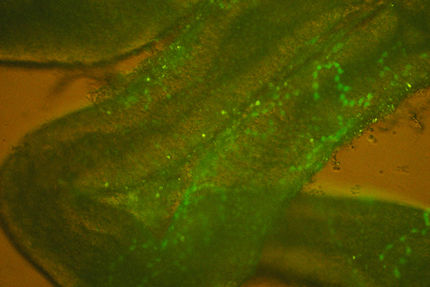The University of Almeria genetically improves castor-oil plants to produce new bio-lubricants
Advertisement
Almeria-based researchers, led by Federico García Maroto, have genetically improved castor-oil plant so as to use it as a factory to produce bio lubricants. This research project, part of a national macro project, is developed through the sub-project titled Desarrollo de nuevas variedades de ricino y sus aceites, funded with 157,139 euros by the previous Spanish Ministry of education and Science and Developer in collaboration with the universities of Málaga and Seville, the Institute of Fat, and the Institute of Sustainable agriculture of Córdoba.
So far, scientists of the University of Almeria have identified and donated a series of genes that are responsible of the biosynthesis of lipids that can be used to obtain transgenic castor-oil plants with an acid profile appropriate for the different requirements of bio lubricants. More specifically, the idea is to obtain an oil with a higher concentration of monounsaturated fatty acids (oleic and palmitic), which are the compounds required to classify an oil as a bio lubricant.
Another one of the objectives to be attained is the identification and characterisation of specific regulatory genetic sequences, called promoters, which drive the expression of such genes to the seeds of castor-oil transgenic plants. A promoter is a specific part of the gene responsible for the creation or accumulation of a desired product in certain tissue or organ.
With such modification, in the case of castor-oil plants, the idea is for fatty oils to get accumulated in the seed without affecting other parts of the plant, thus avoiding negative agronomic effects. Almeria experts have already managed to isolate and clone the desired promoters and their behaviour is currently being checked - with good results - in tobacco plants. The use of this species to validate the developed method is due to the fact that they are a traditionally used model system.
The team of scientists is also working on the introduction of genes into castor-oil plants with a technique that is effective and reproducible for the production of generally applicable bio lubricants. That is, they aim to make a great battery of bio lubricants with different applications: automobile industry, aero generators, industrial engines and motors, etc.


















































